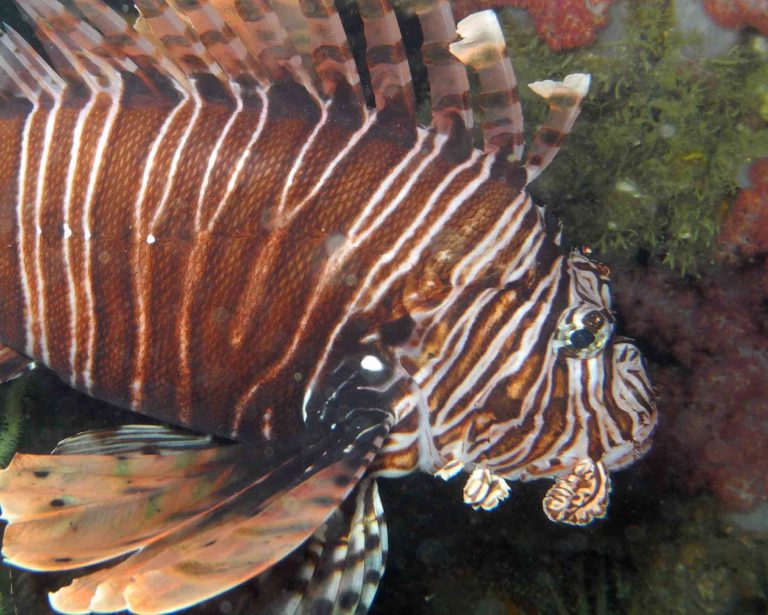DIVING NEWS
A lionfish invasion of the Mediterranean is under way, with the species colonising almost the entire south-east coast of Cyprus in less than a year, according to a new report.
The arrival of the Indo-Pacific predator, which poses a threat to local eco-systems, is linked to sea-surface warming and recent enlargement of the Suez Canal, which links the eastern Mediterranean to the Red Sea.
“Until now, few sightings of the alien lionfish Pterois miles have been reported in the Mediterranean, and it was questionable whether the species could invade this region as it has in the western Atlantic,” says marine biologist Demetris Kletou, co-author of the report, just published in the academic journal Marine Biodiversity Records.
Now groups of lionfish exhibiting mating behaviour have been noted for the first time, according to Kletou, whose report warns of the negative ecological and socio-economic impact the voracious species could have. Lionfish feed on a wide variety of fish and crustaceans and spawn every four days, producing some 2 million planktonic eggs a year.
The rapid colonisation of the Caribbean by lionfish, which with their venomous defence system had no natural predators in the region, has had a devastating effect on native marine-life. The report suggests that divers and fishermen may have to be encouraged to take part in lionfish-removal programmes in the Mediterranean, as they are in the Caribbean.
Since 2012 lionfish have been documented off Lebanon, Rhodes and southern Turkey, indicating a migration west towards the Aegean Sea. The lionfish in Cyprus are said to have colonised the south coast from Limassol to Protaras in the space of a year, with reports of their spread coming mainly from scuba and freedivers. Pairs were noted at a number of sites, including the Zenobia wreck.
There are now said to be 130 alien species in the Mediterranean, including the blue-spotted cornetfish, which colonised almost the entire Mediterranean in seven years, and the Lagocephalus sceleratus pufferfish.

